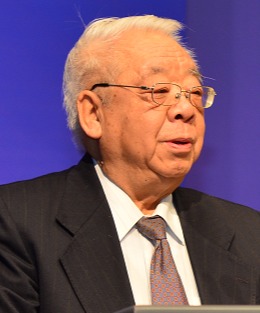
Written by MA Zhengang
Former Deputy Director of Foreign Affairs Bureau of the State Council
Former Chinese Ambassador to the UK
Member of the Advisory Committee of the Institute for Global Cooperation and Understanding (iGCU), Peking University
In the face of global threats, it is imperative countries work together to build a safer and more prosperous world.
The Indo-Pacific region is full of vitality with marked progress in regional cooperation for mutual benefits. China and India are the biggest countries in the region. But the United States has long exerted significant influence on this region. If China, India and the US could strengthen mutual trust, they could cooperate to jointly advance regional development. That would not only be beneficial to the all-around development of the region and the world at large, but also be greatly beneficial to the development of the three countries.
Development will inevitably bring changes. Different countries have different development status; therefore, the speed of their development will vary. Development will also inevitably bring about reforms. New circumstances call for reform of outdated international rules. The international order and global landscape were established after World War II. It is only reasonable and natural for people to demand reforms on those parts that are not in line with the new global landscape and circumstances.
If we use the Cold War mindset to explain the latest changes, refer to these changes as challenges or threats, use authoritarianism to contain these changes, and use unilateralism to resist multilateralism and globalization, it will threaten global stability, peace and development, and undermine the fundamental interests of people everywhere. It has been proven time and time again that mutual trust and mutually beneficial cooperation are the only way to maintain peace and push forward common development.
The international community is confronted with threats and challenges of all sorts: both traditional and non-traditional; threats and challenges caused by humans and natural ones. These threats and challenges cannot be eliminated by a single country or a few countries, but require concerted efforts from all countries. A global issue needs a global solution. The unexpected outbreak of the COVID-19 pandemic is a severe new challenge to all people worldwide.
China was the first country to detect the outbreak of the novel coronavirus. The Chinese government immediately attached great significance to the outbreak response, mobilizing all people in the country to fight against the virus and adopting all possible medical measures, including resolutely locking down Wuhan, the capital of Hubei province with more than 10 million inhabitants, for 76 days and making continuous efforts on the research and development of vaccines. In the meantime, since the very beginning of the outbreak, China has been in close communication with the World Health Organization and the international community to bolster international cooperation in combating the COVID-19 pandemic. With the concerted efforts of the Chinese people, the pandemic has been largely contained in China, but the whole country is still on alert and is taking concrete measures to help other countries in their fights against the pandemic.
The United States and India are the two countries hit hardest by the pandemic, and it is to be hoped that they can bring the virus under control now that vaccination programs are being rolled out in both countries.
This pandemic has been the most severe public health crisis in the past century. It has not only put people's health and safety at risk, but also wreaked havoc on the global economy and societies around the world.
The global flows of capital, personnel and goods have shrunk substantially, dealing a heavy blow to the global supply chains and value chains and obstructing the process of globalization. At the national level, the pandemic has magnified the political, economic and social vulnerabilities of countries and made the existing economic inequality, political polarization and information gaps even more pronounced.
There is no doubt that this public health crisis has had a profound impact on the current global order. Or that the international order is being reshaped amid the mounting uncertainties, with the COVID-19 pandemic both promoting and accelerating the reshaping process. Last year was a difficult one for all countries and more ordeals are likely this year and in the years to come. Against such a backdrop, people have to think deeply about what kind of international order and global landscape are conducive to human development and societal progress. In any case, adopting the mindset of the Cold War will get us nowhere, and there's no good but harm in emphasizing the differences in state systems and ideologies for political purposes. Only by recognizing and appreciating diversity, promoting mutual respect and equality and seeking coexistence and cooperation can countries realize mutually beneficial collaboration as well as common development and prosperity.
Although the pandemic has dealt a heavy blow to the world, there are still positive factors to be found despite all the uncertainties. These are more conducive to optimism and conceiving the future international order and global governance. If the future global governance system is more equitable and inclusive, countries and individuals would be more secure in the face of non-traditional security challenges.
As the world's three major powers with wide-ranging influence, China, the US and India should set a good example for mutually beneficial cooperation and make outstanding contributions to global development and progress.
The COVID-19 pandemic is a major challenge to human society, but it has also created new needs and consensus. The pandemic has shown that the destinies of countries and people are linked as never before in the face of the virus. In this context, it is all the more important for us to uphold the vision of a community with a shared future for mankind, work together to combat the pandemic, tackle the public health crisis and turn the crisis into an opportunity.
Note:This article has been published by China Daily Global on January 21,2021.
Link: https://epaper.chinadaily.com.cn/a/202101/21/WS6008b955a31099a23435369e.html
